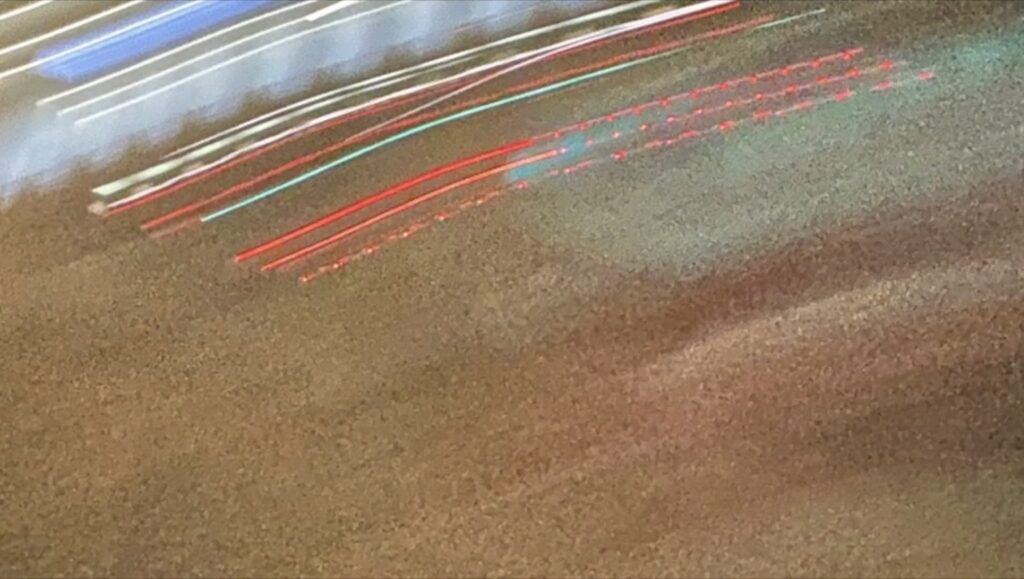Josiah Angcanan’s ‘Revolver’ is a stark, experimental short. For six minutes, the screen becomes a canvas for flickering, fragmented visuals: some vivid and defined, others vague, repetitive or abstract. There is no score. No ambiece. Just the calm, controlled voice of Prune Wong guiding us through the silence.
Her narration forms the backbone of the film. She circles the same sentence structure with insistence – “A film is…” – “A film is a cry for help”. “A film is a lonely place to die”.
Visually, ‘Revolver’ is unpredictable. A flash of found footage. A blur of light. A repeated motion that unspools with hypnotic insistence. The cuts are sharp, the pacing intentionally erratic. It’s less about what you see and more about how it feels to watch it – disoriented, uneasy, slightly exposed.
This is not a short film for passive viewing. It doesn’t offer resolution or catharsis. It offers dislocation. But it does so with precision. Angcanan is not throwing images at the wall to see what sticks – he’s building a language out of fragments, repetition and silence.
For some, ‘Revolver’ will feel impenetrable. For others, it will facinate. It captures something rarely seen in short form: the way memory distorts, repeats, and echoes when spoken aloud but never quite understood. Boldly minimalist, and unwavering in its vision, ‘Revolver’ leaves interpretation to the viewer.


